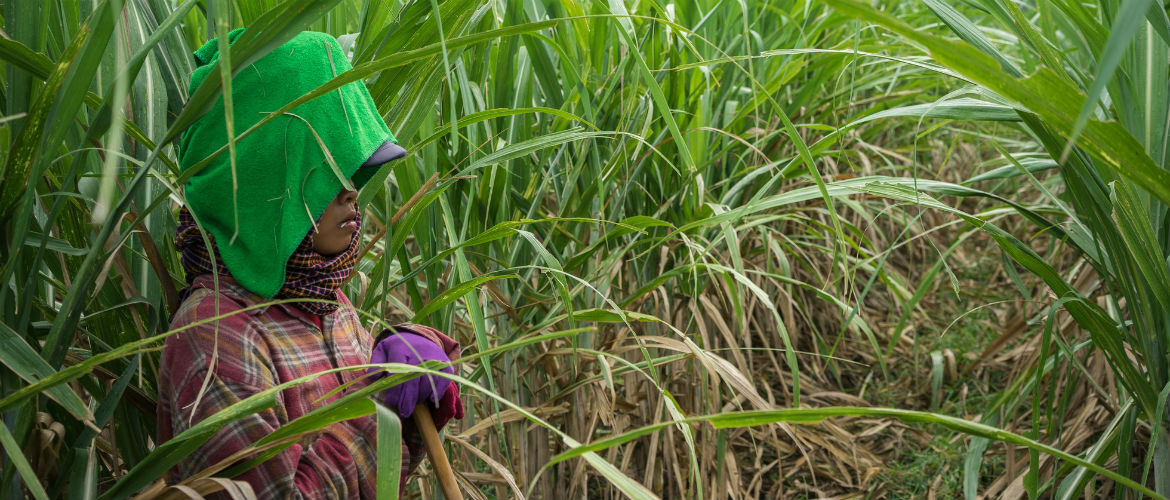
Oxfam’s latest research into the links between our big four banks and land grabbing makes for sober reading.
With today’s release of the report Still Banking on Land Grabs, Oxfam’s Food, Climate and Humanitarian Advocacy Manager, Kelly Dent, takes a look at what this means for Australia’s financial sector, and how ordinary Australians are reacting to the news that their bank (and as a consequence their savings), could be endangering human rights and our environment:
After losing their homes and farming land to Phnom Penh Sugar (PPS), some farmers from Pis village in Kampong Speu, Cambodia, are now seeking work on a nearby plantation where they can be paid less than USD $3 a day (pictured above).
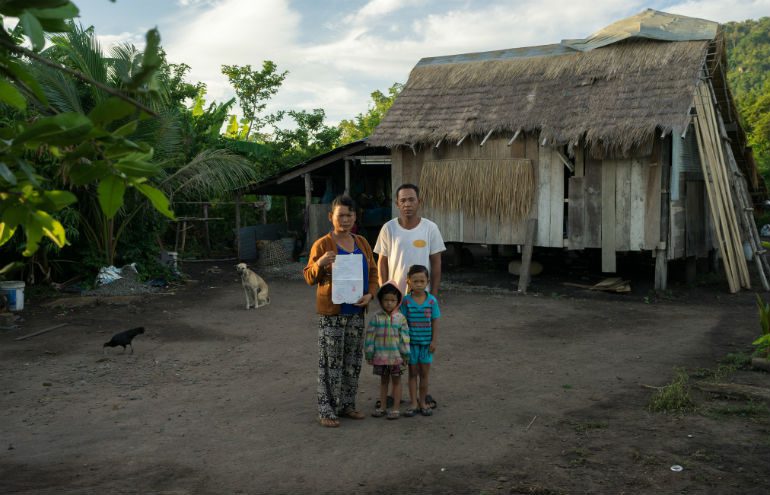
Hundreds of families were evicted to make way for the plantation.
In the period from 2011–2014, ANZ part-financed the PPS sugar plantation complex by providing a loan for a sugar mill built on, and sourcing from, the disputed land. The local community is calling for ANZ to return its profits from the deal to communities who now face food shortages, increased debt and loss of livelihoods as a result of losing their land.
What was ANZ’s response?
When we first reported this link between the bank and PPS, ANZ suffered months of negative publicity over the deal. Then suddenly, in July 2014, ANZ announced that PPS had repaid the loan.
Since then, ANZ has claimed to have responded to community concerns, but affected communities have told Oxfam that this has not resulted in any meaningful improvement in their situations following their loss of land.
Due to the circumstances of this case, many in the community believe ANZ should have ensured a heightened level of due diligence around the deal before issuing the loan to Phnom Penh Sugar.
Unfortunately, the people of Pis village are not alone. Each of our big four banks are exposed with links to land grabbing found in countries including Cambodia, Papua New Guinea, Brazil and Indonesia.
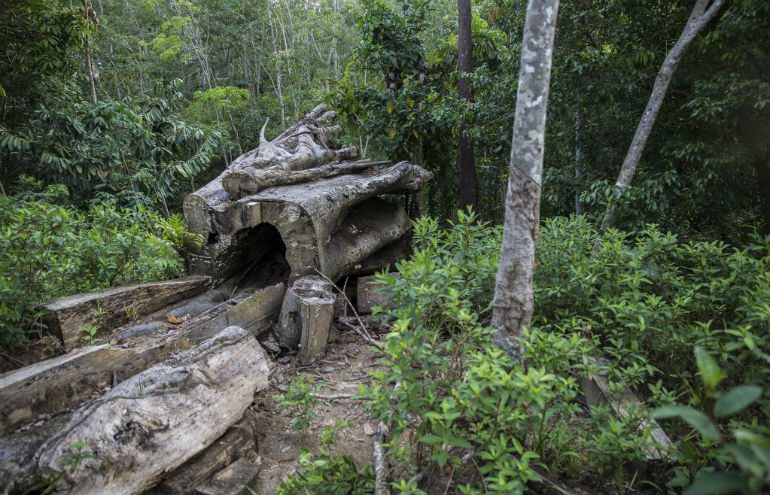
Agribusiness company, PT SIL, is a supplier to global palm oil company Wilmar, which is backed by the National Australia Bank, Commonwealth Bank and Westpac.
In 2011, PT SIL acquired a contested land lease to 2,812 hectares on the island of Sumatra, Indonesia. Since then, it’s exerted pressure on locals to leave their land to develop its own plantation. Community members have reported the destruction of local oil palms, rubber and vegetable plots, as well as threats of violence.
For community safety reasons we are not able to name or show images of some of the people we’ve spoken to in Indonesia. But one local farmer reported that they were forced to erect a fence after the company destroyed their rubber trees.
Another community member refused PT SIL’s offer of a salary — without having to work — as long as they stopped resisting and gave up their land. This community member now organises with other farmers to defend their land.
Land grabbing, often involving forced evictions, is leading to violence, child labour, homelessness, food shortages, environmental degradation and loss of community and culture. It is often extremely difficult for communities to find out who is backing these land grabs.
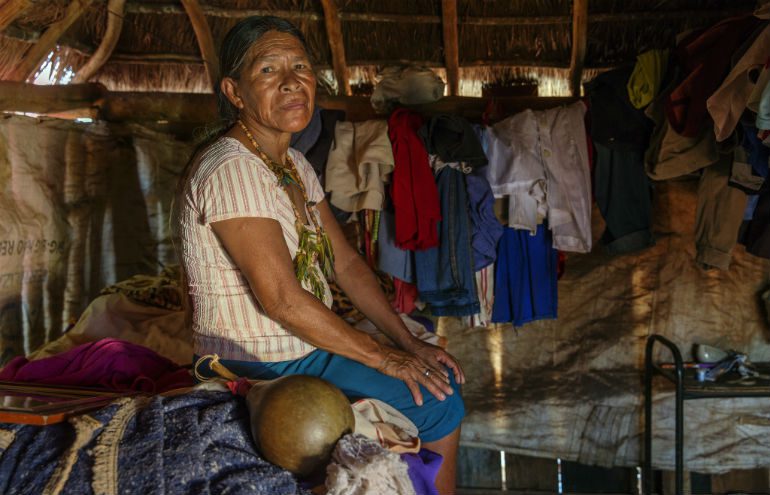
Information is obscured through complex finance channels and corporate structures.
However, Oxfam is establishing the investment chain and finding the links between our big four banks and companies accused of land grabs. And with evermore information making its way into the public arena, Australians are demanding change.
In response to the release of our original report into banks and land grabbing ― Banking on Shaky Ground (2014) — the public’s response was emphatic. So far, more than 20,000 Australians have called on the big banks to end their links to land grabbing.
Australians hold $2.7 trillion dollars in their household bank accounts and superannuation funds. This is equivalent to more than a third of all developing countries’ national debt. Where our money goes matters.
In 2015, the Responsible Investment Association of Australasia described “a year of surging interest in responsible investment, with consumer apathy over investments rapidly dissolving and a growing focus on environmental, social and governance risks.”
And this is only likely to rise with the release of Still Banking on Land Grabs.
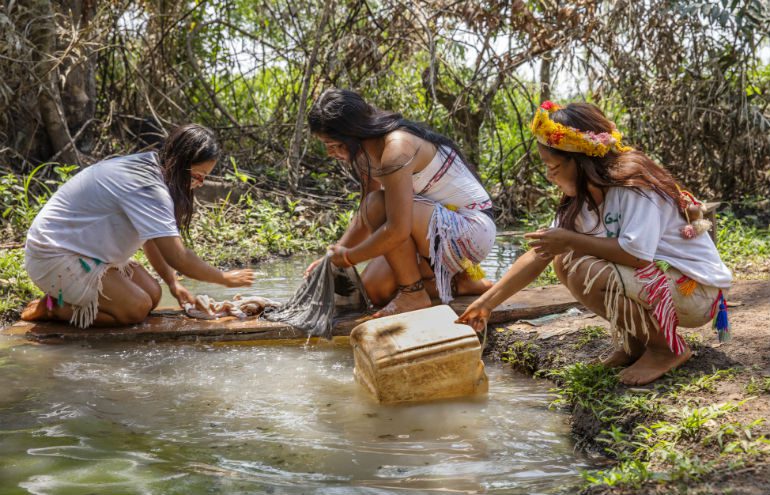
In Still Banking on Land Grabs, we deliver a mixed report card on the big banks.
While we outline some positive first steps by some of the banks, none have yet adopted a zero tolerance for land grabs approach.
Because of this, the big banks remain exposed to the risks that come with backing companies linked to land grabbing; but similarly, so too do the ordinary Australians and institutional investors who have their savings, or otherwise invest, with the big four.
Join the movement for change by calling on your bank to take a zero tolerance towards land grabs approach, to be transparent about its links to agricultural land deals, to commit to increased due diligence, to become a strong advocate for responsible financing and to support redress for communities already affected by land grabbing.
Say no to land grabs today.